Rotator Cuff Training For Surfers
Those damn shoulders…. surfers shoulders. If’ they’re grinding, dislocating, inflamed, crunchy, or pain provoking, than your surfing is suffering, and when you can’t surf because of joint pain, it’s a terribly frustrating thing. You gotta get into rotator cuff training for surfers.
If you’ve had an issue with your shoulders, you’ve probably at one point seen a physio (physical therapist), or sports med doctor, or ortho…. or who knows, the list is endless.
Whoever you saw likely prescribed you some band external rotations or some other type of posterior rotator cuff strength work. That’s unfortunately only one piece of the puzzle with shoulder issues.
ALL THE PIECES TO SURF SHOULDERS
As I’ve written about in the Complete Guide To Surf Paddling Exercise, there’s loads of things that affect the shoulder. Thoracic spine mobility, breathing, anterior chest tissue, mobility, pelvis alignment, serratus anterior function, lower trapezius strength… the body is connected folks!
Learn how to deal with all that stuff in Surf Training Success (bottom of this page). The take home is that R-cuff training is essential, but it’s only part of the picture when creating healthy surf shoulders. With this article, I want to show you two critical methods of rotator cuff training.
But don’t forget, to alleviate a nagging shoulder problem there are often a lot of other aspects to consider.
Surf Shoulders – Rotator Cuff Strengthening Exercises
You’ve got the scapula (shoulder blade), that sits on top of the rib cage. This scapula has something called a glenoid fossa which has a shallow concave area. In that concave area your humeral head (head of the upper arm bone) rests, and is held in place by your rotator cuff.
The Rcuff is comprised of 4 muscles that have attachments on the scapula and form a tendinous cuff around the humeral head to anchor it in place, keep it stable, and prevent unwanted motion while the larger muscles move the entire shoulder. Suprasinatus, Infraspinatus, Teres Minor, and Subscapularis…. those are your Rcuff muscles.
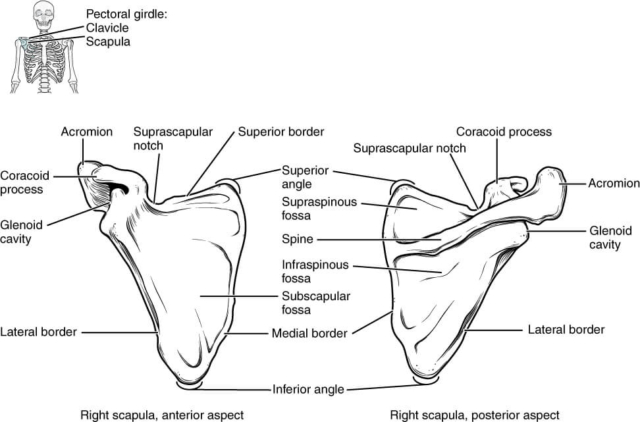
There can be loads of issues that create dysfunction of the Rcuff, and too many pathologies to list here of what could be causing you pain. Despite the myriad of issues or dysfunctions, you’ve often got to strengthen those Rcuff muscles so you can paddle your ass off, pain free… cause paddling in pain sucks, and sucks bad.
2 Methods for R-Cuff Work
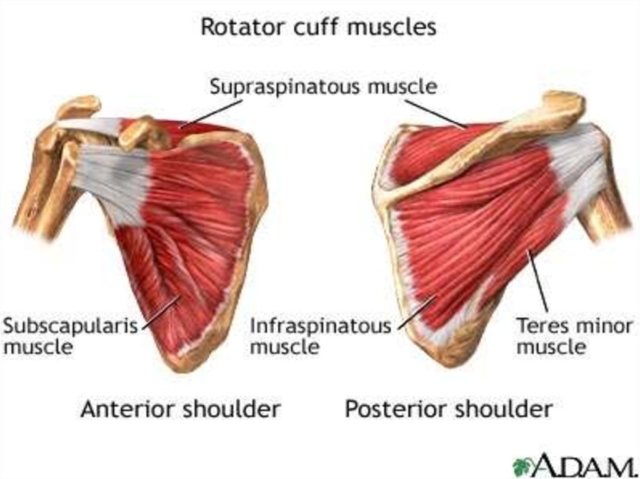
External Rotations focus on strengthening the Teres Minor and Infraspinatus. Due to postural distortions (sitting with hunched shoulders), these muscles become stretched, weak, and dysfunctional… and then they stop properly performing their job, and then your shoulders hurt in the surf. Bad news.
Closed Chain Rhythmic Stabilization In the video I demonstrate ball perturbations. That’s a fairly advanced form of R-cuff rhythmic stability work.
Depending on where your strength levels are and if you have presenting dysfunctions, you may have to regress that movement to one arm circles against a wall, or some other variation.
These RS’s (rhythmic stabilization) are working on the timing of the rotator cuff firing and stabilizing the humeral head. Think of those dynamic forces going through the shoulder joint during a duck dive…. you need dynamic stability and RM’s can help you do that.
IF YOU’RE NOT IN PAIN… YOU SHOULD STILL FOCUS ON R-CUFF WORK
Preventative Maintenance… keep your shoulders optimally performing. Every program I develop for surfers has some focus on shoulder health and integrity, and definitely some focus on keeping that Rcuff happy and strong.
And eat good food!!! Crap food will make you inflamed, and inflammation can start to hurt, and definitely start to affect joints. It also comes into play if you’re dealing with current issue or trying to recover from a surgery.
Learn more here.. Top Foods To Fight Inflammation
Shoulder Health – Good Posture, Healthy Tissue, Proper Range of Motion, Quality Diet, Strong Stabilizers!
Do You Have Some Shoulder Funk!??? —-Check This Out!!
To learn a bit more about this oh-so important joint, check out this goodness from Strength Coach Michelle Drielsma. She does an awesome job of delving into the shoulder girdle, possible dysfunctions, and gives some great exercises.
Here’s Some More Gnarly Shoulder Stuff!! – My Current Favourite Shoulder Endurance Exercise
And Check Out The Article!! It’s full of surf shoulder training goodness. SURF SHOULDER EXERCISES – CLOCKS
Want the Low-Down on How To Fix Your Nagging Shoulder Problems?

All the tissue work, all the stretches, the necessary core strength, the additional rotator cuff work… all the goods to keep you duck diving the bombs, and paddling the heavy point currents.
Surf Training Success includes Essential Shoulder Training, which gives you the steps I use with my clients to prevent shoulder injury and get rid of aching shoulders in the surf.
Quit missing out on surf because your shoulders are weak, your posture is out of alignment, and you don’t have the strength necessary to surf at your best. Get started on your rotator cuff training for surfers.
-cris


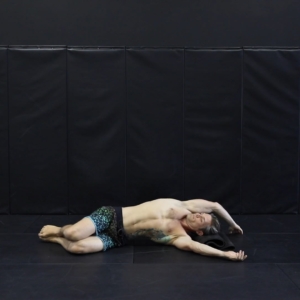
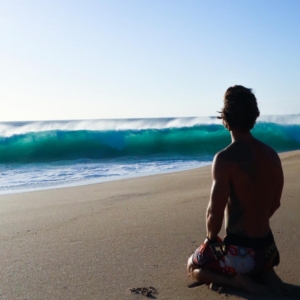
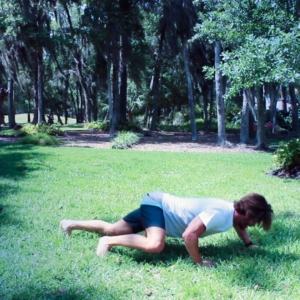
5 Comments